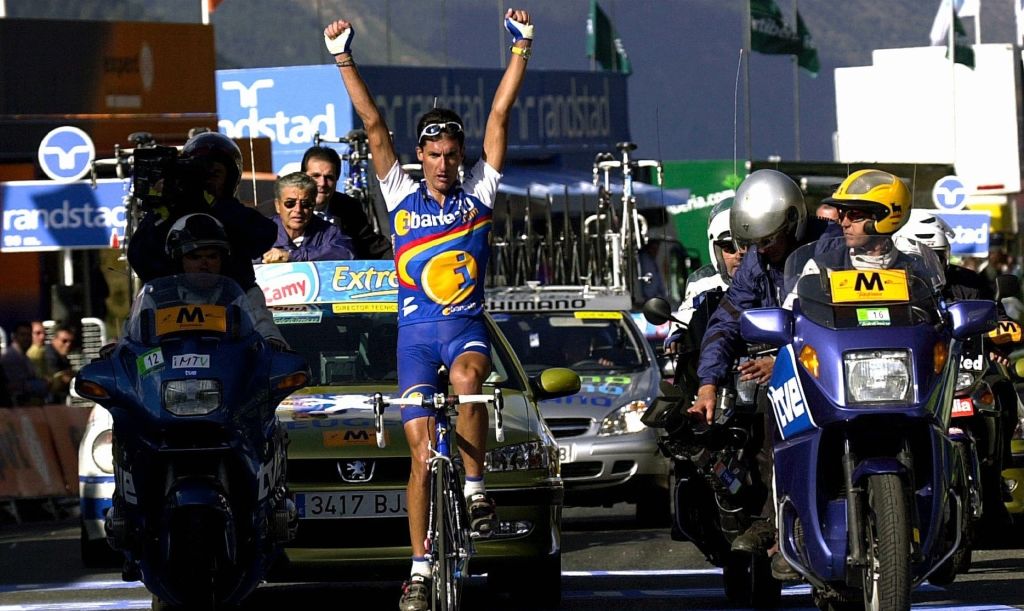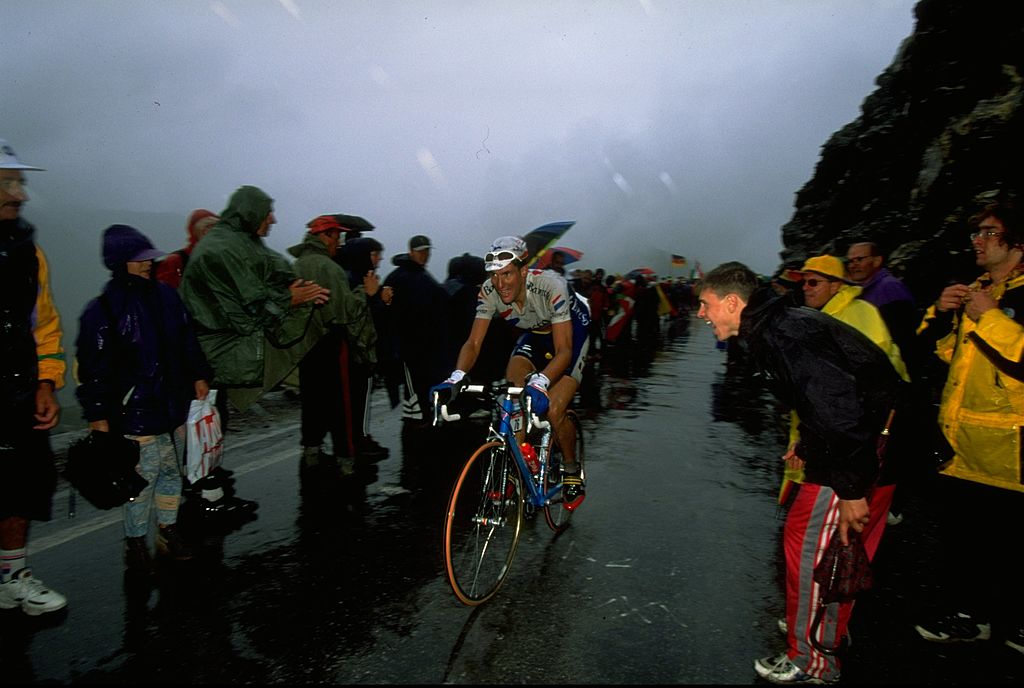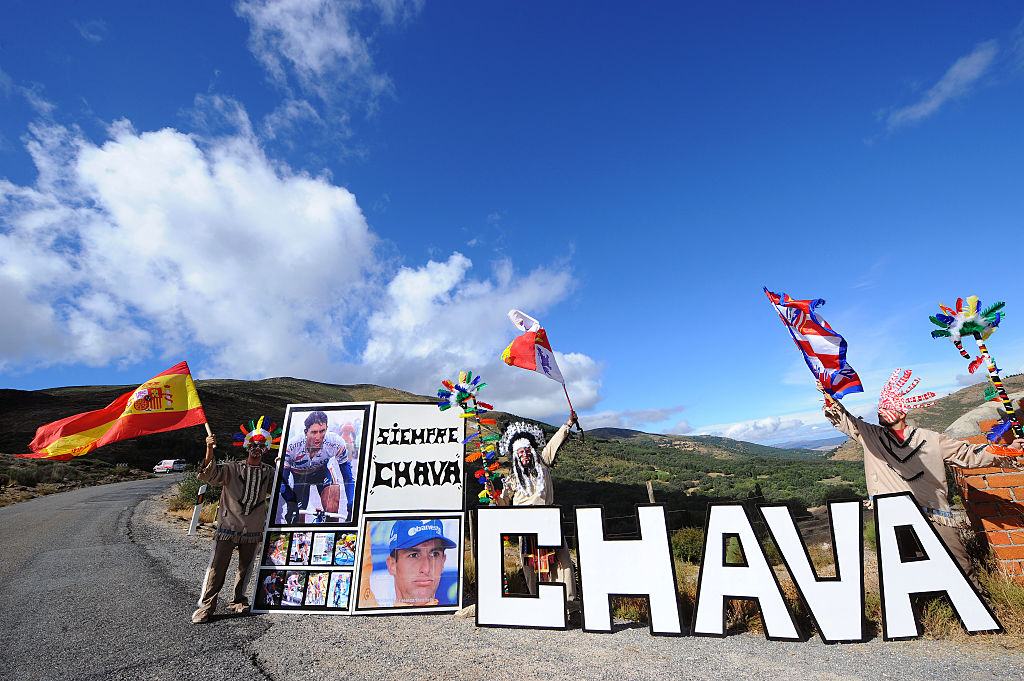
Spanish cycling marked the 20th anniversary of the untimely death of climbing genius José María Jiménez, who died on December 6, 2003 at the age of 32.
Briefly considered a successor to Miguel Indurain in the late 1990s, Jiménez was a brilliant, compelling racer, though but enormously erratic, whose inconsistency and poor time trialling meant he could never reach the heights of Indurain or Spain’s other Grand Tour winners.
But despite being unusually tall for a climber, Jiménez scored some notable mountain-top successes, with his win on the first-ever ascent of a mist-enshrouded Angliru in the 1999 Vuelta a España considered his greatest-ever triumph.
Jiménez’ volatile lifestyle saw him leave the sport early, aged 30 in 2001, at the end of a season in which he had taken three stage wins and the mountains and points rankings in the Vuelta a España.
Suffering from bouts of depression, Jiménez left the sport for good, and less than two years later he died of a heart attack in Madrid.
“He was a charismatic rider who always was synonymous with spectacular racing and who knew how to thrill the fans with his epic style,” was how one article in one major sports daily MARCA, described him on Wednesday.
“Chava Jiménez: 20 years after the death of a legend” was the headline in another leading specialist newspaper, AS.
Born in El Barraco in the mountains west of Madrid, Spanish fans’ homages to Jiménez continue in his hometown. José Maria’s brother Juan Carlos, is writing a book about his sibling, told El Mundo.
“People come here from everywhere in Spain, from Málaga, Barcelona, Santander and Valencia, they pass by the house where my brother lived, they take photos next to his statue in the town, they go to the cemetery and they leave flowers.
“20 years have gone by and they still remember him. He lives on in people’s memories. They remember his achievements and the way he was.”
Impulsive but never less than compelling as a racer, the line between the real-life Jiménez and Jiménez the legend was always a blurry one. Anecdotes like his disappearing from a stage start at the Volta a Catalunya, only to return just in time for the race driving a Ferrari he'd just bought on a whim, only made him more attractive to the fans.
But at the same time, late in his life, he was blighted by depression, once telling AS in 2002 that he had spent two months alone in his bedroom, with such low morale he could not even talk to anybody.

Originally interested in bull-fighting as a career, Jiménez began racing in a cycling school run by Victor Sastre, father of Carlos, also a professional racer. Married to Jiménez’ sister, Carlos dedicated his victory at the Tour de France in 2008 to his late brother-in-law.
After turning pro at 21 in 1993, Jiménez showed notable early success in tough local races like the Subida a Urkiola and Vuelta a la Rioja. But 1997 marked the real breakthrough with victories in the Spanish National Championships and his first stage - of nine in his career - in the Vuelta a España.
In 1998, having conquered the Mont Ventoux in the Criterium du Dauphiné, Jiménez claimed his only podium in a Grand Tour, third in the Vuelta a España behind Banesto teammate Abraham Olano. But his repeated attacks in the mountains in the Vuelta brought him some ferocious, widely publicized, criticism from Olano’s wife Karmele and parts of the Basque media, for allegedly risking Olano’s pathway to victory.
Jiménez’ victory on the mist-enshrouded Angliru in 1999 ahead of Pavel Tonkov marked the highpoint of his career, prior to his coming his closest to a Tour stage win at Courchevel the following year behind Marco Pantani. After another hugely successful season in 2001, though, he retired. Following two ill-advised comeback attempts, his death two years later marked a tragic end to one of Spanish cycling's most colourful and popular modern-day racers.








